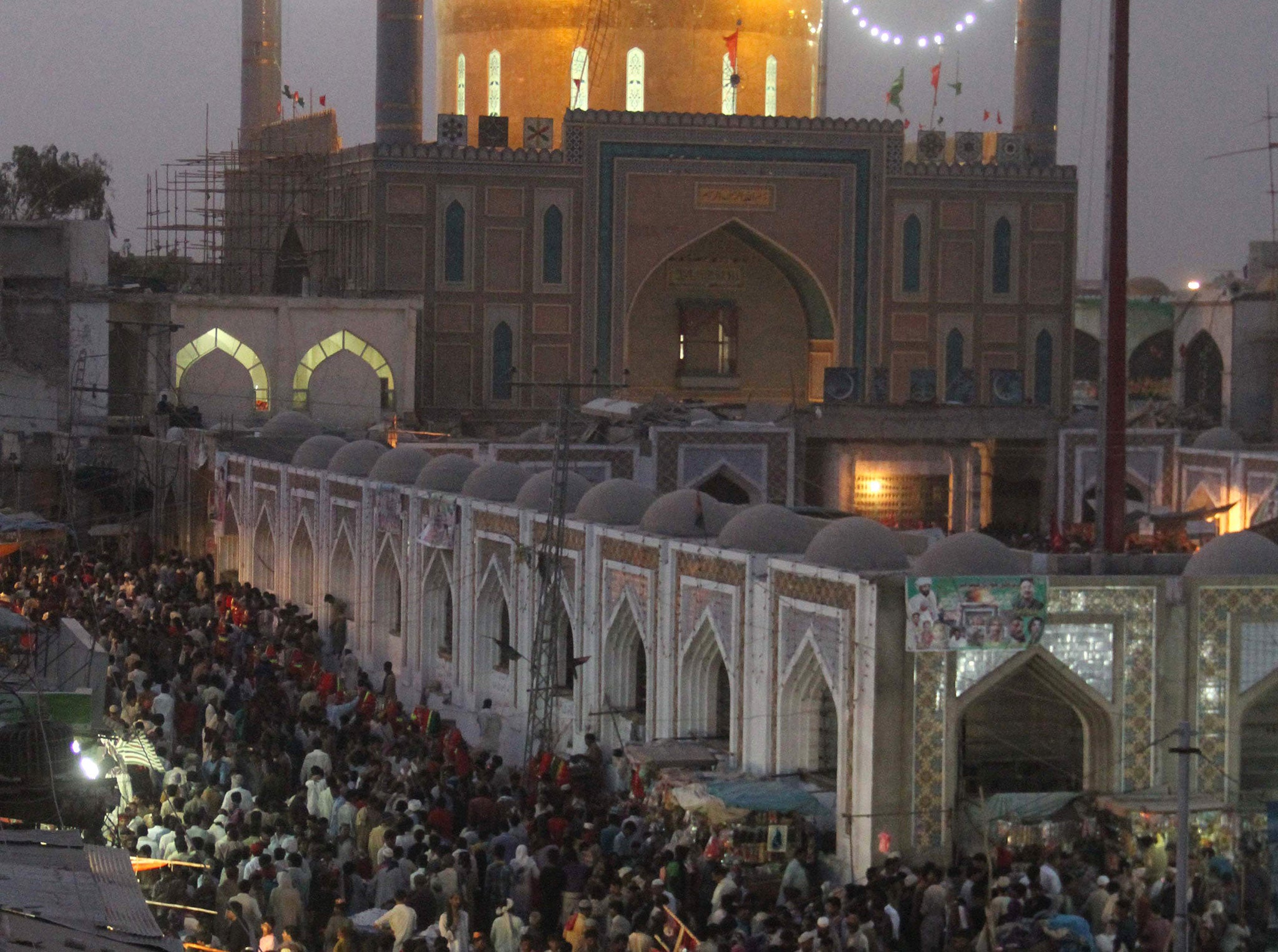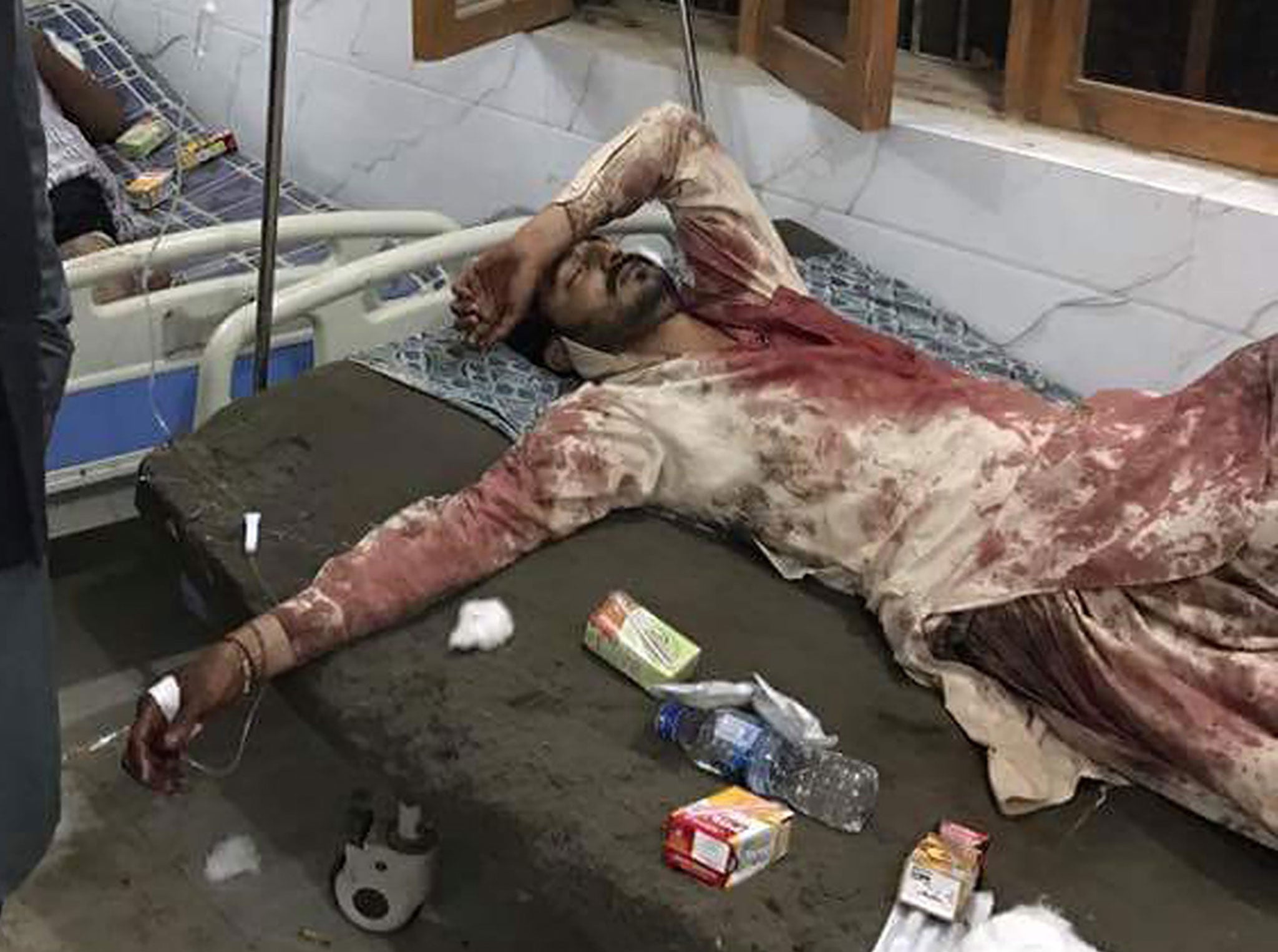Sehwan shrine bombing: Isis claims responsibility for suicide attack killing at least 72 at Sufi Muslim site
Blast comes after Taliban's Jamaat-ur-Ahrar faction launches new wave of violence in Pakistan

At least 72 people have been killed by a bombing at a shrine in Pakistan in the latest terror attack launched in a week of bloodshed sweeping the country.
More than 250 others were injured when a suicide bomber launched a grenade before blowing himself up at the shrine of Lal Shahbaz Qalandar in Sehwan on Thursday evening.
Isis claimed responsibility for the massacre via its Amaq news agency, saying a "martyr of the Islamic State" detonated his vest at what the group described as a "Shia gathering".

The blast hit as Sufi Muslims were gathering to perform the dhamaal ritual. The sect is regarded as heretical by Salafist jihadi groups including Isis, the Taliban and al-Qaeda.
A state of emergency was declared at the region's hospitals as they dealt with casualties and the army is deploying troops to help relief efforts.
Thursday's bombing came after Pakistani counter-terrorism police raided a militant hideout and killed six suspected members of a Taliban faction responsible for a new wave of terror attacks.
Nawaz Sharif, the Pakistani Prime Minister immediately condemned the shrine bombing alongside celebrities and politicians including the former cricketer and MP Imran Khan.
“The past few days have been hard, and my heart is with the victims,” Mr Sharif said.
“But we can't let these events divide us, or scare us. We must stand united in this struggle for the Pakistani identity, and universal humanity.”
Since Monday, several bomb attacks across the country have shattered a period of improving security, with both Isis and the Taliban claiming recent atrocities.
Counter-terror authorities in Punjab province said officers launched an operation at a hideout of the Pakistani Taliban's Jamaat-ur-Ahrar faction in the city of Multan late on Wednesday night.
“The terrorists started firing at the raiding party and threw explosives,” a spokesperson said.
Six militants were killed and at least three others escaped under the cover of darkness, leaving behind two hand grenades, two automatic rifles and two pistols.
Jamaat-ur-Ahrar, which has formally re-joined the Pakistani Taliban after previously splitting and expressing support for Isis, claimed responsibility for killing 13 people in Lahore on Monday.
Militants said the attack was the beginning of a new campaign of violence against the government, security forces, the judiciary and secular political parties.
Since then, jihadis have killed two bomb disposal officers in the western city of Quetta and murdered five other victims in a suicide bombing outside a government officer near Peshawar on Wednesday.
On the same day, a suicide bomber on a motor bike attacked a group of judges in a van in the city, killing their driver.
A roadside bomb hit an army convoy on Thursday, killing three soldiers in the south-western province of Baluchistan, but no group immediately claimed responsibility for that attack.
An army offensive launched in 2014 aimed to push militants out of their strongholds near the Afghan border but terrorist groups are now competing with each other after Isis launched the “Khorasan Province” in Pakistan and Afghanistan in 2015.
The Sufi Muslim minority were previously targeted in November, when a blast killed more than 50 people at the shrine of Shah Norani in Balochistan.
The wave of violence has raised tensions between Pakistan and Afghanistan, with Islamabad summoning an Afghan diplomat to voice concern about Jamaat-ur-Ahrar “sanctuaries” over the border.
Pakistani authorities claim militants launch attacks from Afghanistan, where the government and international troops are fighting to oust al-Qaeda and the Taliban in the continuing war.
Afghanistan and the United States have in turn accused Pakistan of harbouring Afghan Taliban leaders fighting to topple the Western-backed government in Kabul, which it denies.
Additional reporting by agencies
Join our commenting forum
Join thought-provoking conversations, follow other Independent readers and see their replies
Comments